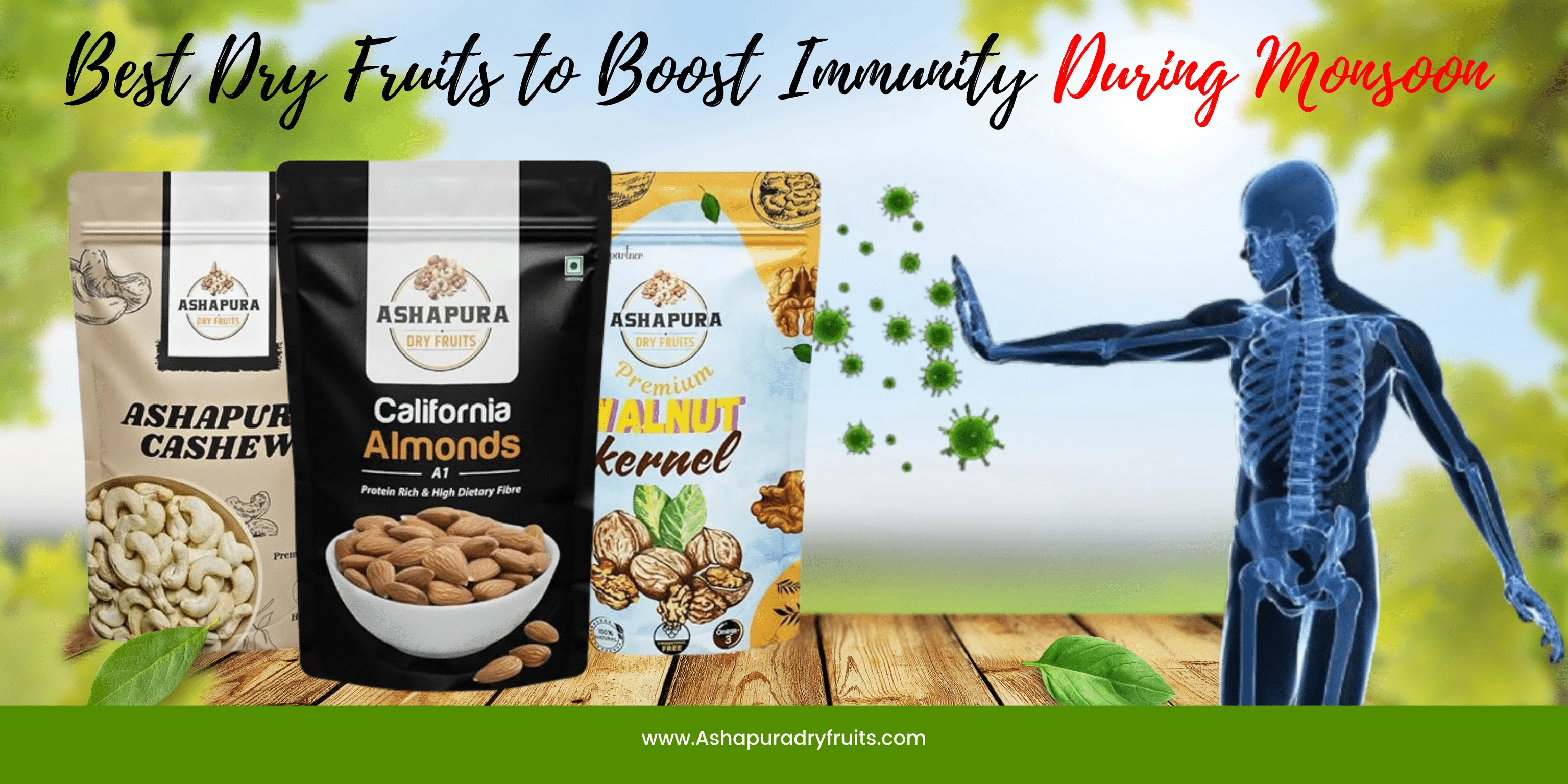


Dry fruits are delicious and packed with essential vitamins, minerals, and antioxidants that help fight off infections, support your immune system, and keep your energy levels steady. Let’s explore the best dry fruits for the rainy season and how they contribute to a stronger, healthier body during the monsoon.
Almonds are one of the best immunity-boosting dry fruits thanks to their rich vitamin E content. Vitamin E is an effective antioxidant that strengthens the immune system and helps scavenge free radicals. Almonds also provide healthy fats and protein, which support overall health.
Soak a handful overnight and eat in the morning.
Add sliced almonds to porridge or yogurt.
Use almond butter on whole-grain toast.
Walnuts are incredibly beneficial during the monsoon as they contain omega-3 fatty acids that reduce inflammation and support cardiovascular and immune health. Their antioxidant content also helps your body fend off seasonal illnesses.
Eat raw as a mid-morning snack.
Add crushed walnuts to oatmeal or salads.
Blend into smoothies for a creamy texture.
Cashews are a great source of zinc, which is essential for immune system function and healing. They also provide healthy fats, magnesium, and iron, supporting energy production and overall wellness during the rainy season.
Add roasted cashews to stir-fries or curries.
Mix into trail mix with other dry fruits.
Enjoy a handful as an evening snack.
Don’t underestimate the humble raisin. These dried grapes are rich in polyphenols and iron, making them excellent for maintaining energy and immunity during monsoon days. They are also a healthy substitute for sugary treats due to their inherent sweetness.
Add to breakfast cereals or oats.
Mix into homemade granola or energy bars.
Sprinkle over rice dishes for a sweet twist.
Dried figs are loaded with fiber, iron, and potassium — all important for digestive health and immune function. Fiber also helps regulate digestion, which can become sluggish in the humid monsoon climate.
Eat whole figs as a natural snack.
Dice and add to muesli or yogurt.
Use fig paste in baking or desserts.
Dates are known for their natural sugars and high antioxidant content, including flavonoids and carotenoids, which strengthen the immune system. Their iron content also helps fight fatigue, a common issue during gloomy, rainy days.
Enjoy 2–3 dates as a post-meal sweet.
Blend into smoothies for a natural sweetener.
Use chopped dates in laddoos or energy balls.
1. Practice Portion Control:
Dry fruits are calorie-dense. Stick to small servings (a handful per day) to avoid excessive calorie intake.
2. Mix & Match:
Create a monsoon-friendly trail mix with almonds, walnuts, raisins, and cashews for a well-rounded snack.
3. Stay Hydrated:
Dry fruits can be dehydrating. Ensure you’re drinking plenty of water, especially during monsoon when digestion tends to slow down.
4. Choose Quality Products:
Always opt for fresh, unsweetened, and preservative-free dry fruits from trusted sources like Ashapura Dry Fruits to ensure maximum nutrition.
Staying healthy during the monsoon doesn't have to be complicated. Including dry fruits to boost immunity in your daily routine can greatly affect how your body handles seasonal changes. Whether you prefer the crunch of almonds, the creaminess of cashews, or the sweetness of raisins and dates, each dry fruit contributes to your health in unique and powerful ways.
Make these best dry fruits for the rainy season a regular part of your monsoon diet and enjoy the rains with a strong immune system and a happy gut. After all, good health starts with good choices — and nature’s dry fruits are among the best choices you can make.
You need to Sign in to view this feature
This address will be removed from this list